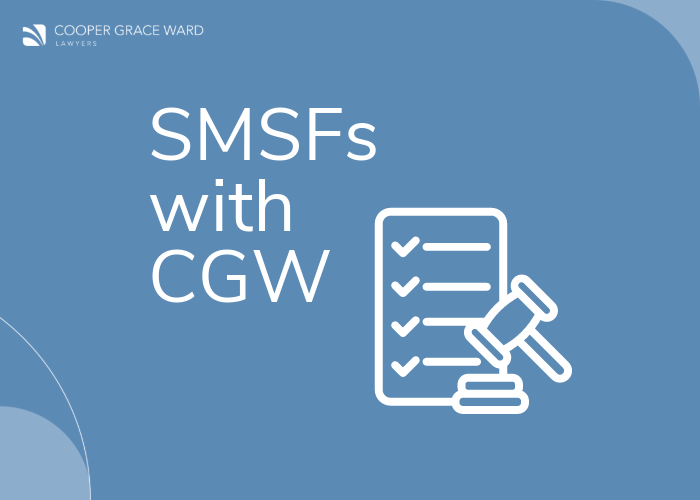The World Health Organisation (WHO) recently declared the coronavirus outbreak a public health emergency of international concern. With the full impact of coronavirus unknown, employers are left with the task of balancing their obligations to worker health and safety with business continuity.
To assist employers to navigate through the uncertainty caused by coronavirus, Cooper Grace Ward has developed the following FAQ’s.
What actions should I consider taking to protect the safety of my workers and business?
- Employers should prepare a Pandemic or Infectious Diseases Plan in conjunction with existing business continuity or crisis management plans and in accordance with the WHO and Department of Health (DoH) guidance.
- Employers should follow the DoH ‘Coronavirus (COVID-19) isolation guidance’ and ensure workers who have returned from listed countries or regions comply with the isolation requirements.
- Implement control measures aimed at eliminating or controlling risks posed by the spread of coronavirus. Safe Work Australia have developed a fact sheet detailing a range of appropriate actions depending on the particular workplace.
- Workers should also be reminded to always practice good hygiene, including
- washing their hands often, with soap and water, or carrying hand sanitiser and using it as needed
- covering their mouth when coughing or sneezing, but not using their hands to do so (e.g. covering their mouth with their elbow)
- seeing a health care professional if they start to feel unwell
- if unwell, avoiding contact with others (including shaking hands or other touching, such as hugging).
What should I do if a worker or their family member is sick with coronavirus?
- Workers who are absent from work because they are unwell with coronavirus can utilise paid personal leave (if applicable).
- If a worker is required to care for a family member who is unwell with coronavirus, they can utilise paid carer’s leave (if applicable).
- If a worker exhausts any accrued paid personal/carer’s leave, or does not have any available, they may seek unpaid personal/carer’s leave (or request another form of applicable paid leave, for example annual leave or long service leave).
Do I have to pay a worker who is in DoH directed mandatory isolation but does not have the coronavirus?
- If DoH guidance directs a worker to isolate themselves for a period of 14 days but they do not have the coronavirus, it is likely that the worker is not entitled to paid personal, carers’ or special paid leave (depending on any applicable Award, Enterprise Agreement or contractual entitlements).
- Workers may be able to use paid personal/carer’s leave if they are unwell or apply to use a form of accrued paid leave throughout this period, for example: any applicable annual leave or long service leave entitlements.
- A worker in mandatory isolation may arrange with their employer to work from home. Under these circumstances, the worker would be entitled to their ordinary remuneration.
What if a worker has travelled to a country or region that does not require mandatory isolation?
- An employer may decide to direct a worker who has recently returned from overseas travel to isolate themselves for a period of time.
- In these circumstances, and depending whether the worker is unwell or not, the worker may be entitled to any applicable paid personal leave or special paid leave. Medical guidance may also be required, for example: a medical clearance concerning the worker’s fitness for work.
- Employers should take care in balancing this type of direction with their obligations concerning unlawful discrimination and seek advice.
- In order to effectively manage worker health and safety, employers should ask their workers to notify them immediately if they have returned from travel since 1 January 2020 and are suffering flu-like symptoms.
- Employers may wish to further encourage workers who have not travelled but are suffering flu-like symptoms to take any available personal leave to ensure the health and safety of other workers, or require them to obtain a medical clearance from a medical professional to ensure they are fit for work.
- To avoid detriment to business, employers may wish to explore whether a worker in the above circumstances is able to work from home. It is recommended that work from home policies are reviewed and preparations are made in advance to avoid potential difficulties when implementing these arrangements.
My business has been affected by the coronavirus – can I use the stand down provisions of the Fair Work Act 2009?
- The Fair Work Act 2009 (Cth) contains provisions that allow an employer to stand down a worker without pay for a period in which the worker cannot be usefully employed in certain circumstances. These circumstances include where there is a stoppage of work for any cause for which the employer cannot reasonably be held responsible.
- Employers looking to engage the stand down provisions should exercise caution. With government directions currently not mandating closures of workplaces, the availability of these provisions are limited. It is suggested employers seek advice about their individual circumstances in order to avoid potential future liability.
Employers looking to understand the potential impacts of coronavirus on their business in more depth or learn further about their rights and obligations with regard to their workers should contact Cooper Grace Ward lawyers directly.





